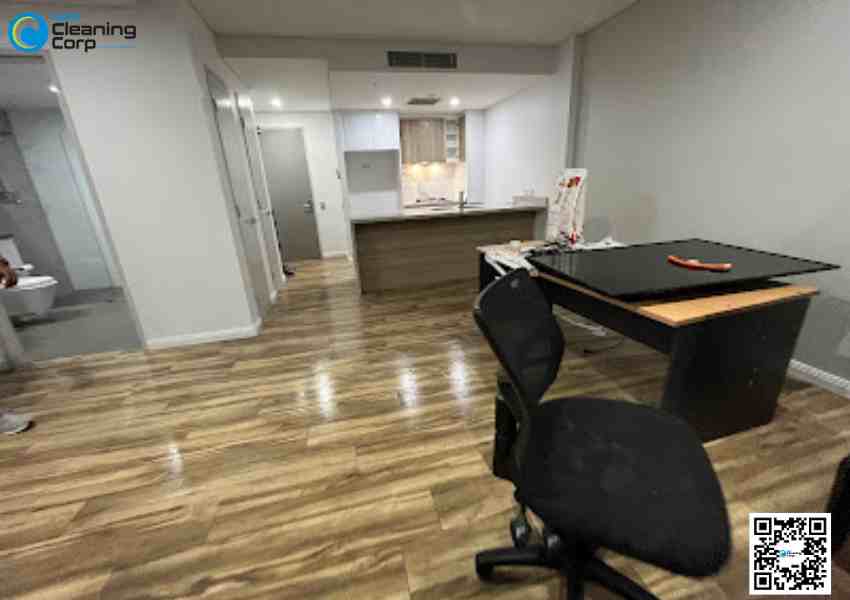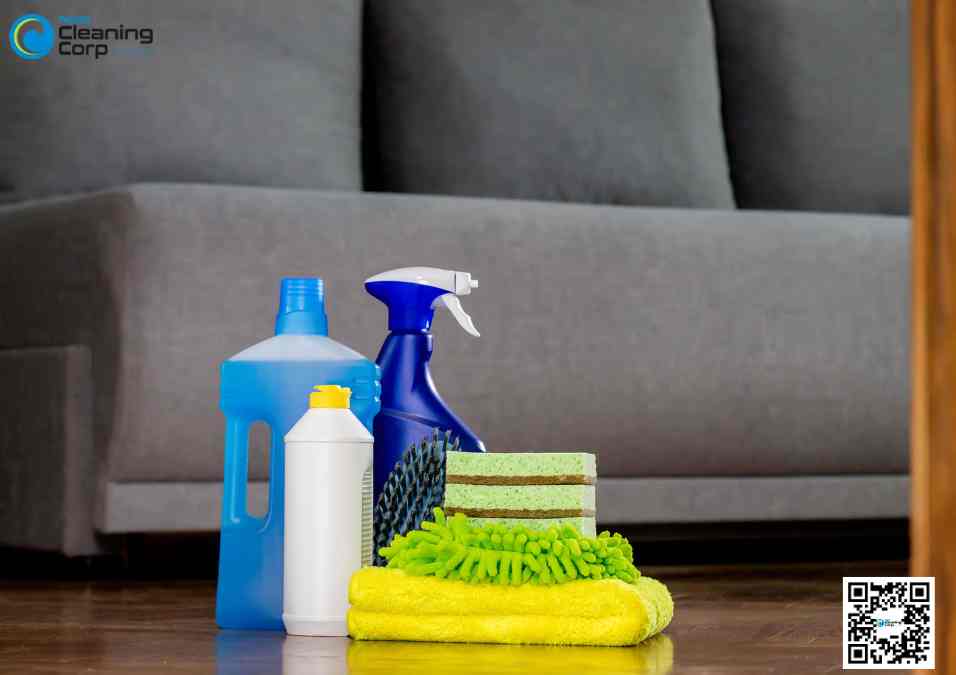Does the NDIS Fund Cleaning Services?
Yes. The NDIS does fund cleaning services — but it...
The importance of clean, organized spaces for NDIS participants’ independence goes far beyond aesthetics—it’s about creating a foundation for safety, autonomy, and well-being. At NDIS Cleaning Corp., we’ve seen firsthand how a clutter-free environment can truly transform the daily lives of participants. For people living with a disability, a well-organized and accessible space doesn’t just make life easier—it empowers them to live more independently and with greater confidence.
When we talk about clean, organized spaces, it’s about more than just tidying up. It’s about creating an environment where every item has its place and every path is clear and accessible. Imagine a kitchen where pots and pans are within easy reach, or a bathroom with grab rails and storage where everything is organized by how often it’s used. These spaces aren’t just neat—they’re functional, designed to give NDIS participants the ability to move freely, do things for themselves, and feel more in control of their daily routines.
This article will explore how a clean, organized environment directly contributes to physical independence, emotional well-being, and overall quality of life for NDIS participants.

The first and most obvious benefit of a clutter-free space is safety. For NDIS participants, this is paramount. A clean environment isn’t just about tidying up—it’s about creating a space where risks are minimized and independence is maximized. A clear pathway is a small change, but it can make a world of difference. Whether it’s ensuring there’s no trip hazard on the floor or having easy access to essential items, organization directly reduces the risk of injury.
Take the example of a participant who previously struggled to move through their living room due to furniture being scattered around and clutter piling up. Once the space was organized—furniture rearranged to allow for easier movement, and things like remote controls and personal care items placed within easy reach—the participant was able to move more freely without fear of tripping. It’s a simple change, but it made a huge impact on their daily routine.
Think about the potential hazards in disorganized spaces—items left on the floor can cause tripping, and misplacing essential tools or medications can lead to frustration and delays in getting things done. In homes where NDIS participants rely on assistive devices like walkers or wheelchairs, these risks are heightened. By keeping spaces neat, we create an environment where independence is possible and accidents are far less likely.
A clean, organized space isn’t just about reducing physical risks—it also works wonders for boosting confidence and empowerment. I’ve personally seen how transformative it can be when an NDIS participant is able to confidently navigate their home without having to rely on others for help. One example that stands out to me is a participant named Claire, who had been living with limited mobility. Her living room was crowded with excess furniture, making it hard for her to get around with her walker.
After we organized the space—removing unnecessary furniture and creating wider, clearer pathways—she was able to move from one room to another independently. The change wasn’t just physical; it was emotional too. Claire gained a sense of autonomy she hadn’t experienced in years. That confidence allowed her to take on other tasks in her home, like preparing meals and managing personal care, with more self-assurance.
Organization is about more than just placing things in order; it’s about giving participants the ability to make decisions more easily. When a space is organized, it’s easier to prioritize tasks, find what’s needed, and move on with the day without frustration. This simple sense of control can significantly improve mental health, reduce stress, and foster a positive outlook on the future.
Speaking of mental health, there’s something incredibly soothing about being in a clean, organized space. For NDIS participants, the psychological benefits are undeniable. A cluttered or disorganized space can create feelings of chaos and overwhelm. It can add unnecessary stress, especially when a person is already navigating the challenges of daily life with a disability.
I’ve worked with participants who initially found it difficult to focus and relax due to their living environments. After making their homes more organized and creating a consistent routine for tidying up, many of these participants reported feeling calmer, less anxious, and more focused. The act of knowing where things are, having spaces dedicated to specific activities, and having an overall sense of order can greatly reduce mental clutter.
For example, one participant, Dave, had been struggling with depression in addition to his physical disability. After we helped him organize his bedroom and living spaces, he shared how much more at ease he felt. He could relax in his space without the constant visual reminder of mess, which had previously contributed to his stress. This emotional shift didn’t just improve his mindset—it helped him become more independent in managing his daily tasks.
One of the most important things we’ve learned at NDIS Cleaning Corp. is that every participant’s needs are unique. There’s no one-size-fits-all approach to organizing spaces. What works for one participant may not work for another. That’s why tailoring spaces to individual needs is so important.
For some participants, mobility aids like walkers or wheelchairs need to be easily accessible, and the layout should accommodate their use. For others, it might be about ensuring they have storage options that are easy to reach, such as lower shelves or pull-out drawers. We always begin by discussing what each participant needs and then create a plan that focuses on their specific requirements.
A good example is Sarah, a participant who uses a wheelchair. Her kitchen was previously filled with high shelves and inaccessible storage. After we helped her reorganize the space with lower shelving and pull-out bins, she was able to access all her cooking utensils and ingredients without help. This small change gave Sarah more control over her kitchen and her daily routine, making it easier for her to maintain her independence.
When it comes to organizing, simplicity is key. Complicated systems can be overwhelming, and they defeat the purpose of making life easier. We recommend creating systems that are simple, practical, and sustainable. Labeling items, using clear storage containers, and color-coding can all help participants easily identify where things belong and where to find them when needed.
For example, using color-coded bins for medications or personal care items allows participants to quickly grab what they need without second guessing. These small but effective systems empower participants to stay organized and maintain their independence without having to rely on others for assistance.
In today’s world, technology can be a huge help in creating an organized and functional space. Smart home devices, for example, can assist with lighting, temperature control, and even reminders for daily tasks. Voice-controlled assistants like Amazon’s Alexa or Google Assistant can be incredibly helpful for NDIS participants in keeping track of appointments, managing household chores, and accessing information with ease.
One of our participants, Tom, uses a smart speaker to set reminders for his daily medications. This simple piece of technology has greatly improved his ability to manage his health independently. For some, technology might include automated lights or doors, while others might benefit from digital apps that help with organization and daily planning.
FAQs:
Why is cleanliness so important for NDIS participants?
Cleanliness is absolutely essential for NDIS participants, and I can speak from personal experience—I’ve seen the difference it makes in their lives. A clean space isn’t just about looks; it’s about creating an environment where NDIS participants can move around safely and with ease. When spaces are clutter-free, it reduces the risks of accidents, like tripping over misplaced items or struggling to find essential tools or medications. A clean environment also helps participants feel empowered to do things on their own, whether it’s making a cup of tea or getting dressed in the morning. It’s about providing them with the foundation to thrive independently.
When I first started NDIS Cleaning Corp., I worked closely with participants to understand the challenges they faced in their homes. Over time, it became clear to me that a clean and organized space was one of the simplest yet most powerful ways to promote autonomy. It’s about making the home feel like a place where the participant is in control.
What are some quick and easy organization tips for NDIS spaces?
One thing I always tell my clients is to start small. Organizing an entire space can feel overwhelming, especially if you’re living with a disability. Focus on one area at a time. For example, organizing the kitchen or bathroom can have an immediate impact. Labeling items and keeping them within easy reach is a game changer. It helps participants find exactly what they need without wasting time or energy searching. I also always recommend keeping pathways clear—especially in areas like hallways or living rooms. Ensuring that there’s nothing in the way makes a huge difference in mobility and safety.
I once worked with a participant named Greg who had a tough time organizing his kitchen. He was feeling frustrated, and we could see how his disorganized kitchen was affecting his confidence. After spending a day helping him label his food storage containers and reorganize his pantry with easy-to-reach shelves, he felt a huge relief. Now, every time Greg opens his kitchen cupboard, he knows exactly where everything is, and it’s made him more independent in meal prep.
How does a clean and organized space support mental health for NDIS participants?
A clean, organized space doesn’t just support physical independence—it has a direct impact on mental health too. I’ve heard it from many NDIS participants themselves. Clutter can overwhelm people, creating unnecessary stress and anxiety. In contrast, a tidy environment helps participants feel like they have control over their surroundings, which can reduce feelings of being overwhelmed.
Take Julie, for example. Julie struggles with anxiety and finds it hard to focus when her space is messy. When she first came to us for help, her living room was filled with piles of books, clothes, and random items. After we spent some time organizing the space, Julie mentioned that she felt an immediate shift in her stress levels. With everything in its place, she felt calmer and more in control of her day-to-day life. It wasn’t just about organizing—it was about making her space a place of peace.
A tidy environment can act like a mental reset, giving participants the clarity they need to manage their day with confidence. It’s not just a physical benefit—it’s about giving them mental space to thrive.
Can organizations help with long-term independence for NDIS participants?
Yes, absolutely. Long-term independence is all about creating systems that are sustainable, and organization plays a big role in that. When spaces are organized in a way that’s tailored to an individual’s needs, they’re able to do more for themselves without relying on others. I’ve seen how small organizational changes can lead to lasting benefits.
For instance, when a participant’s kitchen is organized with lower cabinets or pull-out drawers, they’re able to cook meals independently without needing assistance to reach items. Similarly, when a bedroom is organized with easy access to clothing and personal items, the participant can get dressed, make their bed, and feel more self-sufficient. These changes not only boost confidence but also reduce the need for constant assistance, which means more independence over time.
When you think about long-term independence, it’s not just about physical ability—it’s about creating a functional, supportive environment that helps NDIS participants live as independently as possible.
Conclusion
Maintaining clean, organized spaces is so much more than just a housekeeping task. It’s about creating an environment where NDIS participants feel safe, empowered, and in control. From reducing risks of injury to boosting confidence and supporting mental health, a tidy space plays a pivotal role in fostering independence.
I encourage you to think about how small changes in your space could make a big difference for someone living with a disability. Whether it’s clearing a pathway, organizing a kitchen, or incorporating simple systems, each step counts in promoting independence. At NDIS Cleaning Corp., we’re passionate about helping NDIS participants create spaces that work for them, and we believe that every small step towards an organized space is a step towards greater independence.
If you’re ready to make a change, let’s work together to create a space that truly supports independence and well-being.

Yes. The NDIS does fund cleaning services — but it...

Alright, let’s get straight into it. These are the questions...

NDIS cleaning services are specifically designed to cater to the...

The role of professional cleaning in maintaining a safe and...

Studies consistently show that living in a clutter-free, organized space...